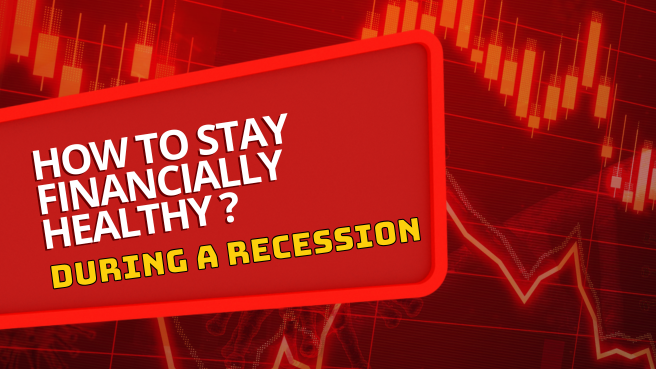Your monthly salary is ₹50,000, and you’re saving ₹5,000. Suddenly, recession hits. Your income drops to ₹40,000, but expenses like rent (₹15,000) and groceries (₹10,000) stay the same.
How will you manage? Simple maths shows you’re left with ₹15,000 after essentials. If you had an emergency fund of ₹1,50,000 (10 months’ savings), you could breathe easy.
But what if you didn’t? Many in Mumbai take personal loans to bridge the gap. In fact, fintech companies saw a 49% year-on-year increase in loan disbursements, reaching a total of ₹1.5 trillion in the financial year 2023-24 (April-March).
Recessions can shake finances, but you can still stay secure with the right strategies. Let’s dive in.
Understanding the Economy
Recessions bring challenges. Jobs shrink. Savings dry up. Markets tumble. But there’s always a way out. Ask yourself: Do I know where my money goes? Am I prepared for sudden cuts?
Mumbai, for example, saw significant job losses in the pandemic recession. Yet, those who reassessed their finances and planned stayed afloat. This is why knowing your financial picture is crucial.
Use these two steps to get clarity:
- List your monthly expenses.
- Calculate your “survival amount” – how much you need to cover basics like rent, food, and EMIs.
If your income drops, cut non-essentials. Focus on what keeps you going.
Budgeting and Expense Management
Budgeting is your safety net. Let’s say your income is ₹60,000. You save ₹6,000 monthly. Post-recession, your income drops to ₹48,000. Here’s how you can adjust:
| Expense Category | Before Recession (₹) | Post-Recession (₹) |
| Rent | 15,000 | 15,000 |
| Groceries | 12,000 | 10,000 |
| Utilities | 5,000 | 4,000 |
| Discretionary | 8,000 | 4,000 |
| Savings | 6,000 | 3,000 |
Prioritise essentials. Cut discretionary expenses by half. Small tweaks like cooking at home or cancelling subscriptions save big over months.
Building an Emergency Fund
Think of this as your financial cushion. Aim for three to six months of expenses. Here’s an example:
- Monthly expenses: ₹30,000.
- Emergency fund needed: ₹90,000 to ₹1,80,000.
Start small. Save ₹5,000 a month. In 18 months, you’ll hit ₹90,000. Use recurring deposits or liquid funds to park this money. Don’t touch it unless it’s a real emergency!
Smart Investment Strategies
During a recession, stay calm. Markets may look scary, but smart moves help. Here are some tips:
- Diversify: Spread money across mutual funds, gold, and fixed deposits.
- Avoid panic selling: Stock values drop, but selling locks in losses.
- Focus on SIPs: Systematic investments average costs over time.
Example: Investing ₹5,000 monthly in a balanced mutual fund over a year can yield better returns during recovery phases.
Debt Management
Don’t let debt drown you. First, list all your loans. Prioritise those with high-interest rates.
For instance:
- Credit card debt: ₹1,00,000 at 36% annual interest = ₹36,000/year.
- Personal loan in Mumbai: ₹2,00,000 at 12% annual interest = ₹24,000/year.
Focus on clearing the credit card first. If struggling, approach banks for restructuring. Always pay EMIs on time. Late fees can add ₹500–₹1,000 per month, worsening the situation.
Exploring Additional Income Sources
Need extra cash flow? Explore these options:
- Freelancing (writing, graphic design).
- Selling unused items online (furniture, electronics).
- Taking a part-time job in fields like tutoring or delivery services.
Let’s say you tutor two students at ₹3,000 each per month. That’s ₹6,000 extra. Over six months, it adds up to ₹36,000!
Maximising Benefits and Savings
Save smarter during tough times:
- Compare insurance premiums online for lower rates.
- Use cashback apps for groceries and essentials.
- Switch to public transport or carpooling.
Don’t overlook government schemes like PMAY for housing or Mudra loans for small businesses.
Conclusion
Recessions are tough but manageable. Whether it’s building an emergency fund or restructuring debt, every step counts.
In Mumbai, where living costs are high, personal loan options can also bridge gaps. But prevention is always better.
Here’s a fact: 40% of Indians regret not planning for emergencies during past recessions. Will you be one of them? Start today to stay financially healthy.
FAQs
- How can I get a personal loan in Mumbai during a recession?
Approach reputed banks or NBFCs. Compare interest rates online. - What’s the ideal emergency fund size?
Three to six months of your monthly expenses. - Should I stop investing during a recession?
No. Continue SIPs and focus on long-term gains. - How do I reduce credit card debt quickly?
Pay more than the minimum amount and prioritise it over other loans.

















